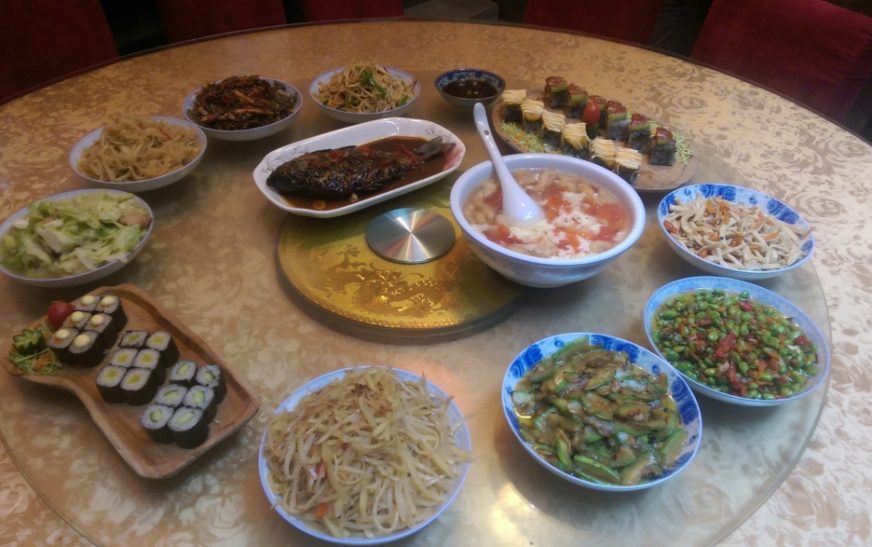Veganism has been rapidly growing worldwide — and China, one of the world’s largest and most diverse culinary cultures, is no exception. While traditional Chinese cuisine is deeply rooted in meat and seafood dishes, there’s a long-standing heritage of plant-based eating, especially in Buddhist culture. Today, “Vegan China” is more than just a trend — it’s a lifestyle gaining momentum in cities and regions across the country.
Whether you’re a traveler, expat, or local exploring cruelty-free living, this guide offers everything you need to know about going vegan in China.
Is Veganism Common in China?
Veganism isn’t mainstream yet, but it’s growing quickly — especially in urban centers like Shanghai, Beijing, Chengdu, and Shenzhen. Many Chinese people follow plant-based diets for religious or health reasons, and the younger generation is increasingly turning to veganism for ethical and environmental motives.
While “vegan” (纯素 – chún sù) is not a household term everywhere, vegetarianism (素食 – sù shí) is familiar due to Buddhist influence.
Traditional Chinese Dishes That Are Naturally Vegan
China’s culinary landscape offers a surprising number of naturally vegan-friendly options. Here are some popular dishes to try:
- Mapo Tofu (vegan version) – Silken tofu in spicy Sichuan sauce
- Stir-Fried Vegetables – With garlic, ginger, or soy sauce
- Doufu Nao (Tofu Brain) – Soft tofu with savory toppings
- Ganbian Sijidou (Dry-Fried Green Beans) – A Sichuan classic
- Zhajiangmian (vegan style) – Noodles with fermented soybean paste
- Baozi & Jiaozi (Steamed Buns & Dumplings) – Many restaurants offer vegetable-only fillings
Tip: Ask for “no meat, no egg, no milk” (不要肉,不要鸡蛋,不要牛奶 – bù yào ròu, bù yào jīdàn, bù yào niúnǎi) to clarify your vegan needs.
Best Cities for Vegans in China
Shanghai
The vegan capital of China! From high-end vegan restaurants to small eco cafés, Shanghai leads the movement with variety and innovation.
- Must-try: Vegan Burger at Duli
- Visit: VeggieWorld Expo (annual vegan event)
Beijing
A blend of tradition and modern veganism, Beijing boasts Buddhist temples with veggie eateries and modern plant-based start-ups.
- Must-visit: King’s Joy, a Michelin-starred vegan fine dining spot
Chengdu
Sichuan cuisine is known for its spices — and many dishes are easy to veganize.
- Try: Vegan hot pot with mushrooms, lotus root, tofu skin, and chili oil
Shenzhen
Young, tech-savvy, and health-conscious. Shenzhen’s vegan cafés are modern and Instagram-worthy.
Vegan Grocery Shopping in China
Vegan grocery shopping is easier than ever, thanks to:
- City Shop, Ole’ Supermarket, and Hema for imported products
- Local markets for fresh produce, tofu, soy milk, and grains
- Online platforms like Taobao, Tmall, and JD.com (search “纯素” or “vegan”)
Vegan Staples to Look For:
- Doujiang (soy milk)
- Mianjin (wheat gluten)
- Preserved vegetables
- Plant milks: oat, almond, coconut
Vegan Alternatives & Mock Meats
China is home to innovative vegan meat brands, many rooted in Buddhist cuisine. Popular options include:
- OmniPork – Plant-based pork alternative
- Zhen Meat – Chinese startup offering plant-based meat for hot pot
- Starfield – One of China’s top plant protein innovators
Traditional Buddhist temples often serve mock duck, chicken, and beef made from tofu, seitan, or mushrooms — ideal for new vegans missing the texture of meat.
Challenges for Vegans in China
- Language barrier: It’s best to carry a vegan translation card or use apps like HappyCow and Google Translate
- Hidden animal products: Be cautious of fish sauce, oyster sauce, and lard in otherwise vegetarian dishes
- Rural areas: Options are limited, but simple meals like rice, tofu, and vegetables are always available
Vegan Events and Communities in China
Vegan Festivals:
- VeggieWorld Shanghai & Beijing
- Green & Vegan Pop-Up Markets
Online Communities:
- WeChat groups for local vegan meetups
- Subreddits like r/vegan and expat forums
- Instagram & Xiaohongshu influencers sharing vegan finds
Veganism & Buddhism in China
Many Buddhist temples in China serve vegan meals based on centuries-old traditions. These dishes are deeply flavorful, nutritious, and made without garlic, onions, or other pungent ingredients (in line with Buddhist dietary laws).
- Must-visit: Wansong Temple in Hangzhou or Vegetarian Hall at Lingyin Temple
Vegan Travel Tips for Visiting China
- Download WeChat – It’s essential for communication, payments, and joining local vegan groups.
- Use HappyCow – Find vegan restaurants and stores in your area.
- Bring essentials – Pack vegan protein bars, supplements, and a multi-language vegan card.
- Research regional cuisine – Knowing what’s typically served can help you customize meals.
Pros and Cons of Being Vegan in China
| Pros | Cons |
| Diverse plant-based food culture | Limited options in rural areas |
| Rapidly growing vegan movement | Hidden animal products |
| Affordable local produce | Language barrier challenges |
| Increasing number of vegan brands | Few 100% vegan restaurants outside cities |
Conclusion
Veganism in China is not only possible — it’s a fascinating journey into a culture with deep plant-based roots and an evolving modern food scene. From ancient Buddhist cuisine to trendy vegan cafés in Shanghai, the country offers diverse and flavorful options for those living a cruelty-free lifestyle.
While challenges like language barriers and hidden ingredients exist, they’re manageable with the right tools, knowledge, and a bit of preparation. Whether you’re visiting China as a vegan traveler or looking to maintain a plant-based lifestyle while living there, you’ll find that “Vegan China” is more accessible and exciting than ever.
With growing awareness, supportive communities, and innovative vegan brands, China is fast becoming a top destination for conscious eaters.
Ready to explore China, one plant-based bite at a time?
FAQs
1. Is it hard to be vegan in China?
Not necessarily. In cities like Shanghai or Beijing, it’s quite easy. In rural areas, you’ll need to be more resourceful and communicate clearly.
2. Are there vegan restaurants in China?
Yes! There are plenty of fully vegan and vegetarian restaurants across major cities. Use apps like HappyCow to find them.
3. What are some traditional Chinese vegan foods?
Stir-fried vegetables, tofu dishes, vegan dumplings, noodles with soybean paste, and Buddhist temple cuisine are all great options.
4. Can I find vegan groceries in China?
Absolutely. Local markets offer fresh produce, tofu, and soy milk, while supermarkets and online platforms stock plant-based packaged goods.
5. What should I say to order vegan food?
Say: “我吃纯素,不要肉、鸡蛋、牛奶” (Wǒ chī cún xù, bù yào ròu, jīdàn, niúnǎi) – “I eat vegan. No meat, eggs, or milk, please.”
Also read: Fernando de Noronha Hotels: 10 Luxurious Stays for a Perfect Vacation










